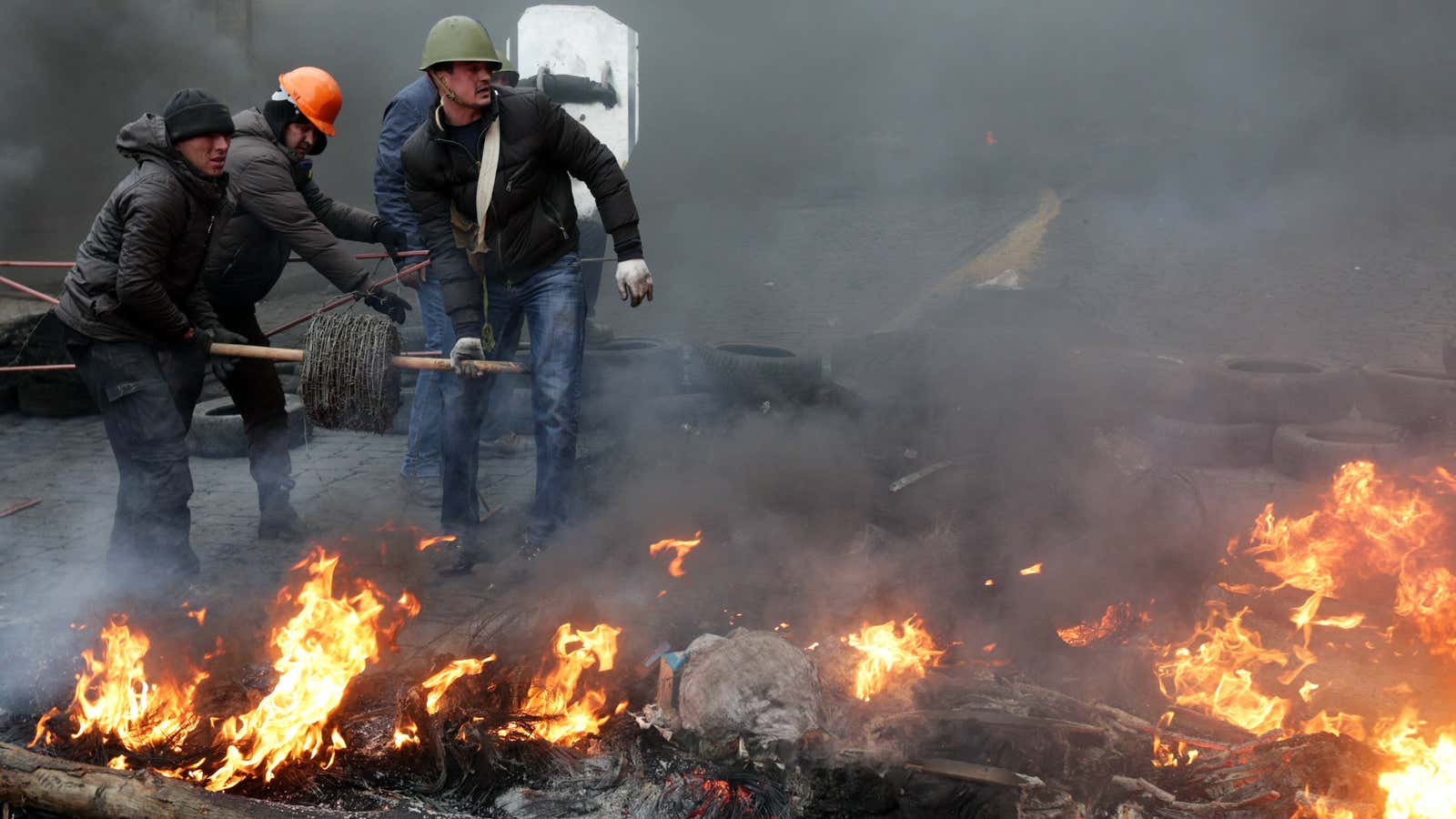With a tentative agreement for new Ukraine elections, the West has a $19-billion question: If it is serious about pulling the country into a non-Russian trade and political relationship, that is the minimum sum the US and Europe may have to offer as an economic lifeline.
As of now, no one seems in a rush–at least publicly–to write a check. While the US and Europe have been fast to denounce president Viktor Yanukovych’s crackdown and impose sanctions on those thought to be responsible, they appear to be hesitant when it comes to the financial bill. Which seems to validate Yanukovych’s fateful November decision to throw his lot in with Russia in exchange for a $15-billion bailout.
But actually the West’s attitude is understandable. According to Transparency International, Ukraine is the most corrupt country in Europe, tying for 144th place globally with Cameroon, Nigeria, Iran and the Central African Republic.
At the traditional core of Ukrainian corruption is the natural gas trade with Russia. Simply put, powerful Ukrainians and Russians skim billions of dollars a year through opaque financial arrangements between the two countries (this description of how the system works, from 2008, remains the best). And it doesn’t seem to matter who’s in power; it has gone on this way for almost two decades, with different powerful clans profiting, depending on who is president.
“The story of Ukrainian power is rent-seeking off of energy deals with Russia,” the Atlantic Council’s Damon Wilson told Quartz. Wilson, former senior director for Europe at the US National Security Council, said that one of the main current beneficiaries of this system is Yanukovych, who along with his family has become wealthy through the natural gas trade. Any deal with Europe would force him to sacrifice this income stream, Wilson said.
Here’s the math on Ukraine’s fiscal needs: $12.9 billion in Ukrainian bond debt comes due by the end of next year, in addition to $1.81 billion in natural gas bills owed immediately to Russia. Additional debt coming due in 2016 takes the bill to $19 billion. That number excludes added gas debt that, if the past is teacher, will also accumulate. It is a lot of money, but the West has spent the post-Soviet period absorbing the entire Warsaw Pact and sending hundreds of millions of dollars more in aid to former Soviet nations. History suggests that, under the right conditions, the US and Europe would bail out Ukraine.
The conditions would include fundamental economic reforms, including sharp budget and subsidy cuts. Yanukovych balked at this straitjacket, and critics say he was never seriously negotiating. But he’s not the first to refuse such terms—no government prior to Yanukovych was willing to undertake basic fiscal reforms, either—and he may well not be the last. It is not clear that the political opposition would be more willing to accept the pain.
People on Kiev’s Independence Square often say corruption is the main reason they want Yanukovych out. But on Western minds is whether, with new national leaders, the illicit wealth derived from natural gas would simply shift to a new set of corrupt hands.




